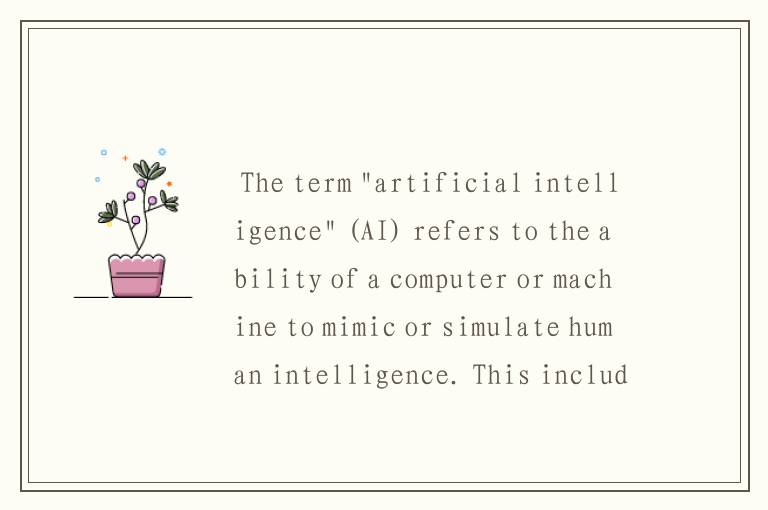丰田傲澜

The term "artificial intelligence" (AI) refers to the ability of a computer or machine to mimic or simulate human intelligence. This includes the ability to learn, reason, problem-solve, and make decisions.AI can be categorized into two main types: narrow AI and general AI. Narrow AI, also known as weak AI, is designed to perform specific tasks and is limited to those tasks. Examples of narrow AI include voice assistants like Siri and Alexa, image recognition software, and recommendation algorithms.General AI, on the other hand, refers to AI systems that possess the ability to understand, learn, and apply knowledge across a wide range of tasks, similar to human intelligence. General AI is often portrayed in science fiction, but it does not currently exist in reality.AI can be further classified into three different levels of autonomy: artificial narrow intelligence (ANI), artificial general intelligence (AGI), and artificial superintelligence (ASI). ANI is the most common form of AI and is designed to perform specific tasks within a limited domain. AGI refers to AI systems that possess the same level of intelligence as a human being and can perform any intellectual task that a human can do. ASI, which does not currently exist, refers to AI systems that surpass human intelligence in all aspects.AI has a wide range of applications across various industries, including healthcare, finance, transportation, and entertainment. It is used to improve efficiency, accuracy, and productivity in tasks such as data analysis, decision-making, and automation.However, AI also raises ethical concerns and challenges. These include issues related to privacy, bias, accountability, and job displacement. As AI continues to advance, it is important to consider these ethical implications and ensure that AI systems are developed and used responsibly.
对于,看完本文,小编觉得你已经对它有了更进一步的认识,也相信你能很好的处理它。如果你还有其他问题未解决,可以看看紫薯百科的其他内容。
声明:本站所有文章资源内容,如无特殊说明或标注,均为采集网络资源。如若本站内容侵犯了原著者的合法权益,可联系本站删除。





